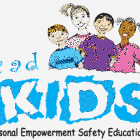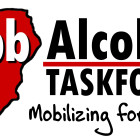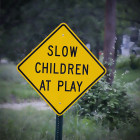
Kids Learn Defense Against Kidnappers
|
Most parents don’t want their children to fight but at radKIDS, hosted by Gainesville, Ga’s., First United Methodist Church’s Fit Fun Camp, parents looked on with pride as their kids punched, kicked and elbowed a police officer dressed in a heavy, rubber protective suit. The children were demonstrating techniques for defending themselves against attackers or kidnappers while Crime Prevention officer Joe Britte of the Gainesville Police Department played the role of the bad guy. According to The Gainesville Times, the radKids program — Resist Aggresssion Defensively — taught kids how to escape an attacker through homework assignments and activities. "If you ever have that happen to you, you know what to do," Madison Sartain, 10, a rising fifth-grader, told The Times. After participating in a similar women’s self-defense course, First United Methodist Church’s recreation director, Vicky Bailey told The Times she wanted her church to host the program.







